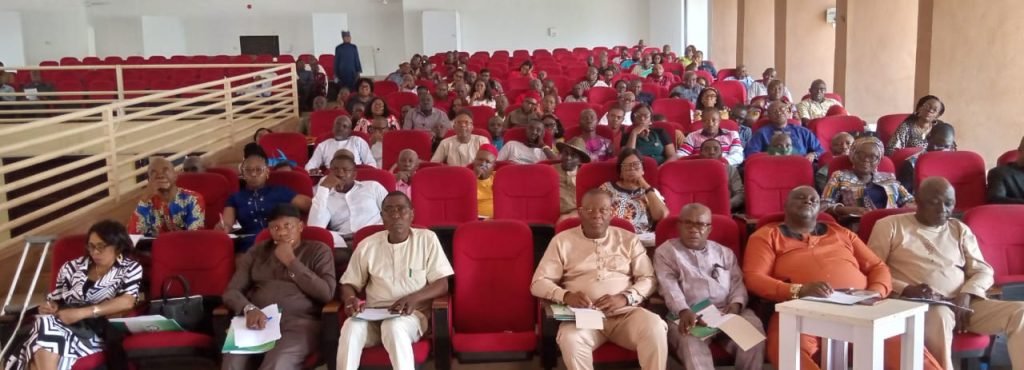Ben Ezechime, Enugu
The National Board for Technical Education (NBTE) says that reviewed entrepreneurship and skills development curricula was meant to give students prerequisite knowledge of creating job and being employers of labour after school.
The Executive Secretary of NBTE, Prof. Idris Bugaje, said this on Wednesday in Enugu during a National Workshop on the Reviewed Entrepreneurship and Skills Development Curricula for Entrepreneurship Educators in Nigeria Polytechnics and Similar Institutions.
The two-day workshop, which is being attended by 250 lecturers drawn from polytechnics, mono-technics and related technical institutions in South-East, is organised by NBTE in collaboration with Danglo Management and Financial Limited sponsored by Tertiary Education Fund (TetFund).
The theme of the workshop is “New Approach to Entrepreneurship Curricula Delivery.”
Bugaje, represented by Dr Kabiru Yar’adua, said that the review curricula would allow the students to graduate with a dual certification – normal school certificate (degree) and skill (occupational) certificate that would encourage them to establish a business or trade.
“Our objective is clear to ensure that our technical education curriculum aligns with the demands of the modern economy, embraces emerging technologies, and fosters a spirit of entrepreneurship and innovation.
“To achieve this, we must collaborate, share our expertise, and engage in open and constructive dialogue throughout the workshop,” he said.
The executive secretary said that due to changing times and modern needs, the focus of the board had changed from degree acquisition to skill proficiency and employment creation.
“Thus, we intend to equip students to make direct socio-economic impact in their environment, creation jobs and eliminate unemployment and idleness,” he said.
He lauded the various stakeholders for their support so far to ensure the review and circulation of the reviewed entrepreneurship curricula after 17 years; adding that “for now entrepreneurship and skill acquisition is compulsory for every student in NBTE regulated institutions.”
In a welcome address, Mrs Ngozi Okelekwe, South-East Director of NBTE, said that the revised (reviewed) curricula on entrepreneurship education, for whose delivery we are gathered together, is expected to enlighten the instructors on the systems that would bring about the expected results.
“This is particularly on establishment of functional skill centres, recognition of skills from the non-formal sector and involving them in the training,” Okelekwe said.
She appreciated TetFund, NBTE management for sponsorship of the workshop as well as private monotechnics and institutions for sponsoring their staff to the workshop.
Dr Musa Koko, Director, Curriculum Development Department of NBTE, noted that before now, the existing entrepreneurship study that had lasted for over 17 years had been obsolete and not meeting modern job creation and employability demands.
“So, we are here to ensure that the reviewed entrepreneurship curricula should work for all our students irrespective of discipline or department and ensure we achieve the deliverables from this modernised entrepreneurship curricula,” Koko said.
Prof. E.A. Dangana, Lead Consultant of Danglo Management and Financial Limited, said that entrepreneurship at Small and Medium Enterprise (SME) had been the bedrock of fast developing nations across the world.
“Entrepreneurship is driven by opportunity, necessity and environment and we must make such knowledge to be at the back of the minds of all our students going forward,” Dangana said.

